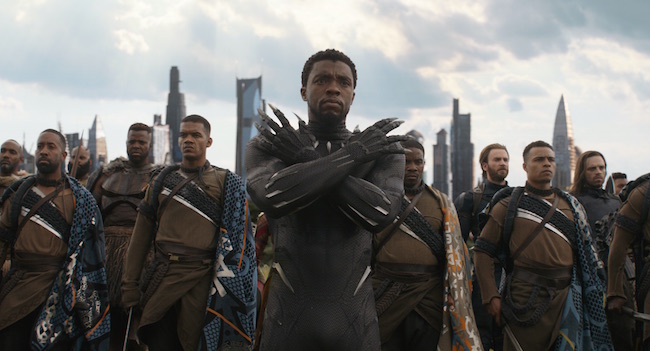
Movies have had a rough 2018, what with the hobbling of MoviePass, the outright death of FilmStruck, the apparent near-impossibility of finding someone to host the Oscars, and the cultural conversation shifting almost entirely to their closest adversary, television. But just when you think cinema is dead, you read a report on The Hollywood Reporter showing that movies are on track to make the most amount of annual income in the 123 years they’ve been alive.
The THR report says that combined ticket sales in 2018 are on track to total $12 billion. The number passed $11 billion this past Tuesday, which was the total for 2017 — a year that even included a brand new Star Wars episode. 2018 is right now 6% ahead of the previous record-holding year, 2016. And there’s still the holiday melée to look forward to, including the arrival of Spider-Man: Into the Spider-Verse, Aquaman, Mary Poppins Returns, Bumblebee, Holmes & Watson, and more.
So how did that happen, in a year not only sans a year-end Star Wars movie, but in a year where the token Star Wars movie, released in the summer, underperformed? The answer: Comic book movies and sequels, and lots of ’em. Remember Black Panther? That made $700 million. And then two months later Avengers: Infinity War came around and gave Marvel/Disney another $678.8 million. (And let’s not forget the not insignificant $225 million Ant-Man and the Wasp scrounged up.) Deadpool 2 ($318.5 million) chipped in to the Scrooge McDuck money bin-sized haul, as did Jurassic World 2 ($416.8 million) and Incredibles 2 ($608.6 million). And that’s just the top five.
These numbers, by the way, are all domestic. Worldwide has not yet been tallied. And the world loves them some Hollywood movies, even if Americans rarely return the favor.
So good thing for blockbusters! Maybe Hollywood can take that excess cash and maybe put it into some of those mid-budget movies — dramas! comedies! drama-comedies! submarine pictures! — they used to make but no longer do for the most part because they think only going after the big fish is sustainable. But, then, according to the numbers, it seems that it is.
(Via THR)
